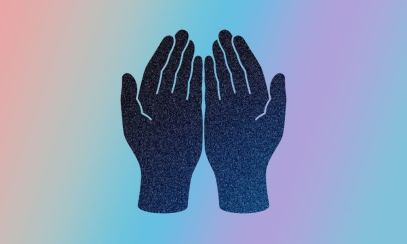Can There Be a ‘Dark Night’ in Our Relationship With God?
Some questions have come to me regarding the “dark night of the soul.” What does that mean? Why does it happen, and to what end?
First of all, the most important question to ask is this: Is my relationship with the Lord growing through prayer? Do I pray every day? If not, why not?
Let’s take the second set of questions first. If you want to have a true and active relationship with God, there must be frequent communication – just as in human relationships. Unless we keep regular contact with our family and friends, they often fade into the background of our daily lives. So, too, this can be true with God.
We build our relationship with God by setting aside time for him each and every day. Start with 15 minutes a day. Read the daily Mass readings, unless you have another plan for reading Scripture. Offer God your day; use the psalms to offer him worship and thanksgiving for what he has done in your life. Repent where you have failed and ask for forgiveness. Then bring God your needs. Close with asking for his grace to live the next 24 hours for his honor and glory.
Second, frequent participation in the Mass and reception of the Eucharist, devoutly received, can truly nourish your soul and enable you to grow in holiness. Jesus truly is present to feed and nourish you! What would happen to your body if you ate only once a week?!
Now for the question on the dark night of the soul. People who are faithful, daily followers of Christ can, in the span of their lives, experience periods of aridity, darkness or desolation when they come to prayer. Faith, hope and love can seem to be far away. God seems to be silent. When this happens for those who are faithful in prayer, it is worth asking ourselves whether there is something physically wrong or whether there is an emotional difficulty to be addressed. But once we have done these things and continue to be faithful to daily prayer (even when our minds and souls seem barren and empty), we should ask a good spiritual director if what we are experiencing can be a ‘‘dark night.” It is a time when God is purifying, testing us as to whether we are willing to genuinely be faithful to prayer, faithful to following him, when we “seem to get nothing out of it.” John the Baptist told us: “He must increase and I must decrease.” (Jn 3:30) The dark night is an expression of that.
Since God desires to live in union with us, he calls us to be willing to be purified, to repent of our sin, to make a real effort to grow in virtue. This is not so we get a good report card, but so we honestly face ourselves and ask him to make us holy – to be more like him. We cannot do it for ourselves; God has to be the author and the architect. Once we allow him that right (God never violates our free will), he can and will draw us into union with him – a process that can begin, and even begin to mature, while we are on this earth. The “dark night,” as described above, is sometimes at God’s initiative – his way of helping us to die to ourselves. This may take shape in various ways in different lives. Our task is to take our relationship with God seriously, and then allow him the right to guide us to himself, however he chooses.



